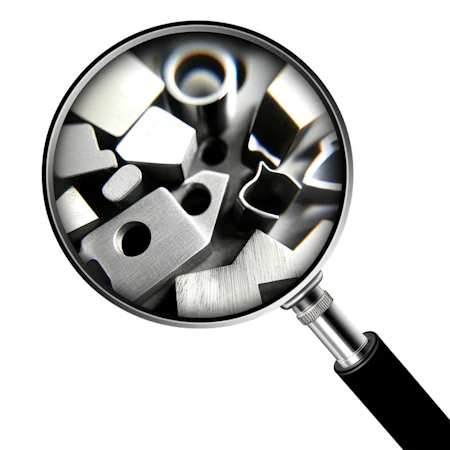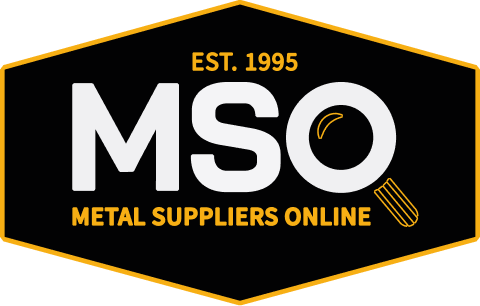Back To Browse
Titanium
Titanium 15-3-3-3
Aging Procedure
Age at 538 C(1000 F) for 8 hours, air cool.
Annealing Procedure
Stress relieve at 538-649 C(1000-1200 F). For full solution annealing, soak at 1450 F and air cool.
Applications
This alloy is currently used primarily for airframe applications although it has also been considered for a variety of aerospace fasteners, tubing and tankage components.
Cold Workability
The cold working characteristics of this alloy are similar to those found in austenitic stainless steels. In multiple forming operations, intermediate stress relieving is recommended to offset the alloy's tendency to work harden. Post-work annealing is recommended to reattain maximum performance characteristics.
Forgeability
Rough forge at 982-1093 C( 1800-2000 F), finish at 816-927 C(1500-1700 F).
Formability
This alloy can be hot or cold formed and will exhibit characteristics equivalent to those found in a 1/8 to 1/4 hard austenitic stainless steel. It is strip-producible and highly cold formable.
Heat Treatability
Solution treat at 788-816 C(1450-1500 F), 3-30 minutes followed by air cooling.
Hot Workability
Hot forming will reduce both the springback and required forming forces, and will increase the overall ductility of the material.
Machinability
As a family, titanium and its alloys have developed a mystique as a nightmare to machine. This is simply not the case. Experienced operators have compared its characteristics to those found in 316 stainless steel. Recommended practice includes high coolant flow(to offset the material's low thermal conductivity), slow speeds and relatively high feed rates. Tooling should be tungsten carbide designations C1-C4 or cobalt type high speed tools.
Other Physical Properties
Beta Transus (F +/- 25) 1400
Principle Design Features
15-3-3-3 is an age hardenable, metastable-beta alloy used primarily in sheet metal applications due to its excellent strength and cold formability characteristics. It is available from mill producers but is not solidly supported by any of the known national distributors. Beta Transus (F +/- 25) 1400.
Weldability
Rated as "good" in terms of weldability.
Known Forms
Bar-Hollow
Closed Die Forgings
Flanges
Flat Bar
Foil
Forgings-Discs
Hexagon Bar
Open Die Forgings
Pipe-Seamless
Pipe-Welded
Plate
Round Bar
Seamless Rolled Rings
Sheet
Square Bar
Strip
Tube-Round (Seamless)
Tube-Round (Welded)
Wire-Round
Wire-Welding
Billet
Coil
Contour Rings
Fittings
Forgings-Upset
Mandrel Rings
Shafts
Shapes-Extruded
Welded Rings
Additional Data
Specifications
4914,R58153Dismiss
Chemical Elements
| Aluminum | 2.5 - 3.5 |
| Carbon | 0.05 max |
| Chromium | 2.5 - 3.5 |
| Hydrogen 2 | 0.015 max |
| Iron | 0.25 max |
| Nitrogen | 0.05 max |
| Oxygen | 0.13 max |
| Remainder Each | 0.1 max |
| Remainder Total | 0.4 max |
| Tin | 2.5 - 3.5 |
| Titanium | Balance |
| Vanadium | 14 - 16 |
Physical Properties
Density: 0.172lb/in³
Mechanical Properties
Modulus of Elasticity – Tension: 13.5MSI
Thermal Expansion
| Condition | Min | Max | Expansion Coefficient |
|---|---|---|---|
| Annealed | 32 °F | 800 °F | 5.4 µin/in/°F |
Mechanical Test Data
| Form | Sheet |
| Condition | Solution Annealed & Aged |
| Measurement Temperature | 70°F |
| Elongation | 7% |
| Tensile Strength | 145KSI |
| Yield Strength | 140KSI |
Find the metal you're looking for today.

